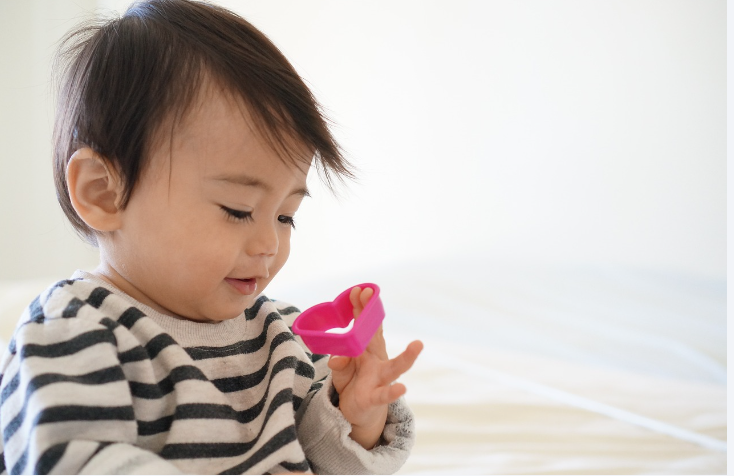Mom News Today: The Enchanting Melody - Can a Baby Laugh at 2 Weeks Old?

Babies bring immense joy and wonder to their parents' lives, and one of the most heartwarming moments for any parent is witnessing their little one smile or giggle. But can a baby truly laugh at just 2 weeks old? In this edition of Mom News Today, we delve into the fascinating world of infant development to explore the early emergence of laughter and the cues that may resemble laughter in newborns.
Understanding Early Development
At just 2 weeks old, babies are still in the early stages of development. Their tiny bodies and minds are rapidly adjusting to life outside the womb, and they are experiencing various reflexes and responses to the world around them.
Newborn Smiles: Reflex or Social Response?
One of the first signs of communication and connection that parents eagerly look for is their baby's smile. It is essential to understand that smiles in newborns may initially be reflexive rather than a true social response.
Reflex Smiles: Within the first few weeks of life, newborns may exhibit what is called a "reflex smile." These smiles are spontaneous and often occur during sleep or when they are passing gas. They are not a conscious response to external stimuli but rather a natural reflex of the developing facial muscles.
Social Smiles: Around 6 to 8 weeks of age, babies begin to exhibit "social smiles," which are intentional responses to stimuli, such as their parents' voices or faces. These smiles are a significant milestone in social and emotional development, as they signal the baby's increasing awareness of their environment and their ability to engage in social interactions.
Gurgles and Coos: Early Vocalizations
Alongside these early smiles, newborns also begin to make a variety of sounds, such as gurgles, coos, and little vocalizations. These early vocalizations are the baby's way of exploring their vocal cords and engaging with their caregivers.
While these sounds may not yet resemble full-blown laughter, they are the first steps towards developing communication and language skills. As parents respond to these early vocalizations with smiles, encouragement, and gentle interactions, the baby's desire to communicate and engage grows stronger.
Signs of Delight and Joy
Though babies at 2 weeks old may not be laughing in the way adults do, they can display signs of delight and joy through their body language and facial expressions. For instance, when content and comfortable, a baby may:
Flutter Their Eyes: Newborns often flutter their eyes when they are drowsy or feeling content after a feed or a comforting touch. This fluttering can sometimes resemble a small smile.
Facial Expressions: Newborns can make various facial expressions, including the classic "gummy" smile where they open their mouth wide. While these early smiles may not be a response to external stimuli, they are charming and heartwarming to witness.
Coos and Vocalizations: As mentioned earlier, babies at this age may coo and make little vocalizations that convey their comfort and contentment.
Nurturing Early Bonds and Development
While a baby at 2 weeks old may not be laughing in the way we typically think of laughter, their smiles and early vocalizations are the foundation for building strong parent-child bonds. Engaging in responsive and affectionate interactions with your newborn helps in nurturing their emotional and social development.
As your baby grows, you will notice their smiles and laughter becoming more deliberate and responsive to the world around them. Each milestone in their development is a celebration, and as parents, we cherish every step of their journey.
Conclusion
While a baby at 2 weeks old may not be laughing in the same way as older infants, their smiles, gurgles, and coos are signs of their early communication and social development. Mom News Today presents the ultimate guide to the Best Baby Shower Games, guaranteed to create memorable moments and foster a heartwarming atmosphere at your upcoming celebration.
As parents, we embrace and celebrate every moment of our baby's growth, knowing that each step in their development is a precious and irreplaceable memory. The enchanting melody of a baby's laughter will soon fill our homes, a testament to the boundless joy they bring into our lives.
- Industry
- Art
- Causes
- Crafts
- Dance
- Drinks
- Film
- Fitness
- Food
- Games
- Gardening
- Health
- Home
- Literature
- Music
- Networking
- Other
- Party
- Religion
- Shopping
- Sports
- Theater
- Wellness
- News


